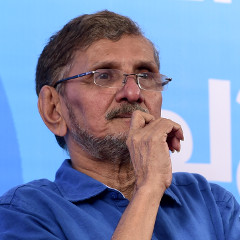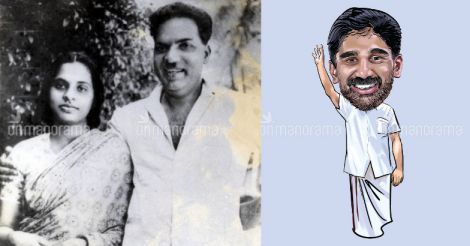Not many personalities have influenced the course of history like Mahatma Gandhi and Abraham Lincoln. Their detractors have rifled through their biographies to find anything to dent their images.
Lincoln has been termed a white supremacist even though he was instrumental in abolishing the slavery of black people in the United States. Lincoln's political legacy has been challenged ever since Malcolm X said he was one of the people who had tricked the Negros.
Such rereading often shifts from political space to personal, especially sexual life. This happened with Lincoln. He was termed as a homosexual in several books and articles that appeared in early 21st century. Joseph Lelyveld almost attributed the same trait on Gandhi in his 2011 book 'Great Soul: Mahatma Gandhi and His Struggle with India'.
Stories about an affair between Jawaharlal Nehru and Lady Mountbatten have been repeated so many times that they are passed on as truth these days. Instead of showing restraint in such affairs, media often fans the obscene curiosities of the people.
Even the BBC, with its reputation for being a credible media house, telecast a television series titled 'The Crown', in which Lord Mountbatten’s character is heard lamenting the flirtatious behavior of his wife and describing Nehru as his rival in India.
Yet no historical evidence is available on any of the affairs attributed to Lincoln, Gandhi and Nehru.
These allegations are about people who lived a long time ago. Such allegations could be lacerating when leveled against living people. The judicial commission report on the solar scam in Kerala is almost entirely based on a letter written by a woman at the heart of the scandal. The commission has not obtained any supplementary evidence. We will have to wait for a court order to get to know the truth about the serious allegations of sexual abuse. The fact that the report was written by a judge, and not a historian or journalist, says something about the times we live in.
The use of sexual allegations as a weapon to target icons and ordinary men is nothing new. Such weapons, however, have a couple of trends favoring them in our times. Firstly, we have moved beyond lies and half-truths to post-truths.
Public opinion is formed by emotional and personal statements rather than facts. They often cherry-pick facts to lend credibility to their arguments. They want debates, which always have two sides.
Secondly, women worldwide have spoken up against their abusers since October 2017. Thousands of women came forward to share their stories of abuse after actress Alyssa Milano launched the #MeToo hashtag campaign exposing Hollywood producer Harvey Weinstein. Many among the rich and famous had their dirty stories brought out in the open.
The Time magazine picked the six women who led the movement as the “person of the year” and put them on the cover.
The #MeToo campaign turned public opinion against sexual harassment like never before. Anyone could level an allegation against anyone with a degree of credibility.
That was when V T Balram took to Facebook to call AKG a pedophile. Dead for 40 years, AKG was as revered as Lincoln and Gandhi. The comment sparked a fierce debate. Balram inadvertently showed Kerala what post-truth politics was.
Terming Balram's comments as post-truth may not be accurate though. The passage he cited from AKG's autobiography differs from the original.
More and more icons are likely to be targeted this way when history is written through WhatsApp forwards. You cannot resist it by hurling abuses. The only way to counter it is to repeat the truth patiently.
A fact-checking website has pinned about 2,000 lies by none other than the US president last year.

























